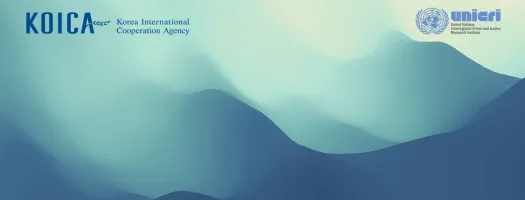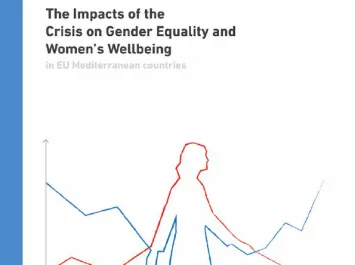
The United Nations Interregional Crime and Justice Research Institute (UNICRI) today launched a two-year project to build gender-sensitive resilience to violent extremism in the Sahel, through a strong partnership with the Korea International Cooperation Agency (KOICA).
UNICRI Director, Ms. Antonia Marie De Meo, and the Director of KOICA Morocco Office, Mr. Yongwoo Jeong, signed the Grant Agreement at a virtual ceremony to mark the official launch of the project.
Ms. De Meo expressed appreciation to KOICA for their generous support in the project, which represents the first collaboration between the two agencies.
“Today’s launch represents a decisive step towards a more holistic understanding of the impact of gender dynamics on violent radicalization in the Sahel. KOICA’s generous support to UNICRI through this project marks the beginning of our fruitful work together to strengthen resilience to violent extremism in the Sahel and beyond”, she said.
Mr. Jeong stated that “violent extremism threatens and undermines democratic institutions, adversely affects governmental instability and slows down economic development,” and affirmed that “Republic of Korea is pleased to join the movement against violent extremism in Sahel Region based on gender equality and we look forward to working closely together with UNICRI”.
In accordance with the objectives set out in the 2030 Agenda, particularly Sustainable Development Goals (SDGs) 5 on Gender Equality and SDG 16 on Peace, Justice and Strong Institutions, the project specifically aims to:
Conduct context-specific research on the under-explored topic of the role of gender discrimination in recruitment to violent extremist groups among both men and women in Mauritania, Mali and Niger; and
Build the capacity of key stakeholders in the region to apply a Prevention of Violent Extremism (PVE) approach that fully considers and addresses the gender dynamics of recruitment and radicalization leading to terrorism in the region.
According to a situation analysis by UNICRI, gender roles and related expectations contribute to individuals’ support to violent extremism in the Sahel. Mauritania, Mali, and Niger specifically present gender context-related vulnerabilities that might be exploited by violent extremist groups. However, a lack of gender-specific data prevents a full understanding of the phenomenon, and this project aims to – partially – contribute to addressing that knowledge gap. The findings of the research will also represent the basis for the development of tailor-made capacity building initiatives for national authorities and civil society organizations in the three target countries.
Embracing a holistic approach, the project will help key stakeholders better understand the multi-faceted, gendered causes behind support for violent extremist groups in the region, contributing to the development of more effective PVE policies and interventions.
This project is particularly significant as it is the first step in the expansion of KOICA's strong partnership with Mauritania and 2023 marks the 60th anniversary since the two countries established diplomatic relations.



